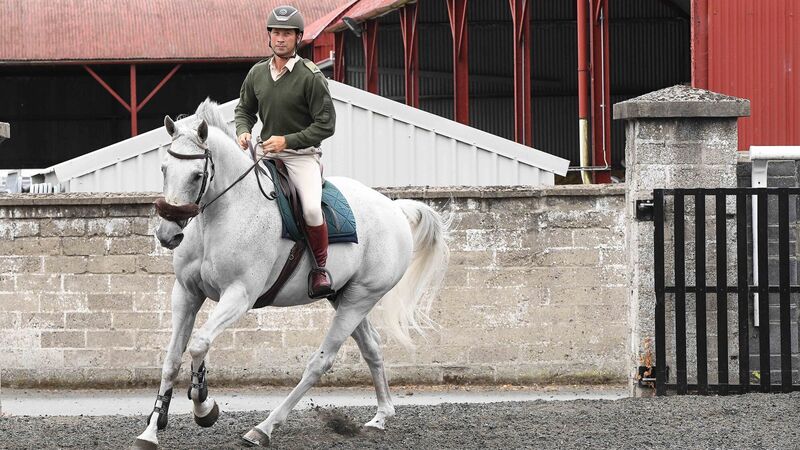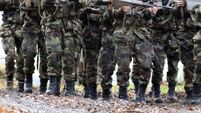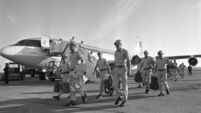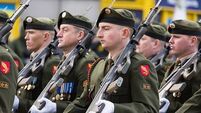Meet the 'ambassadors on horseback' of Ireland's Army Equitation School

Commandant Geoff Curran, originally from Fenor, Co Waterford, exercising Hawthorn Hill at the Army Equitation School. One of Ireland’s great showjumpers, Cmdt Curran has represented Ireland at the Olympics. Picture: Moya Nolan
Cloistered behind high red brick walls in Dublin’s bustling city, an Olympic rider puts a gleaming grey horse through its perfect paces.













